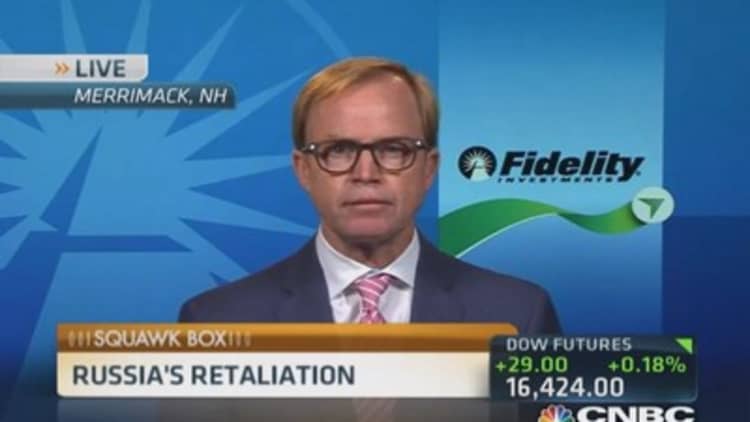After imports of fruit, vegetable, meat, fish, milk and dairy products from the U.S., European Union, Australia, Canada and Norway were banned for a year on Thursday, Russian supermarkets are going to have to find substitutes fast.
Russia's own agricultural industry, despite plenty of land to farm, hasn't performed particularly well since the Soviet era, as farms struggled with the move from collective farming to a more capitalist system, and young rural Russians moved to cities in droves. The country imports close to half its food.
The EU's Agriculture Market Management Committee plans to hold an emergency meeting to discuss the restrictions next week, Reuters reported later on Thursday.
One notable omission from the sanctions list is alcohol, which may be a relief to international drinks companies like Heineken – and to Russians wanting to drown their sorrows.
Here, we look at some of the winners and losers from the latest round of sanctions:

WINNERS
Serbian pork farmers
For the next couple of years, not being a European Union member (yet) may play in the favor of Serbia's agricultural industry as a whole. The country has "strong historical and trade relations with Russia" as Tim Ash, head of emerging markets research at Standard Bank, pointed out. And with formerly popular Canadian and EU pork off the menu, Serbian ham could appear on more Russian plates.
Belarussian cheesemakers
Belarus is the world's fourth biggest exporter of cheese, and that could be about to get more lucrative now Russians won't be able to get hold of French brie. The country is part of the fledgling Eurasian Economic Union, Russia's attempt to mimic the European Union trade agreements, which will officially begin in January.
Armenian fruit/vegetable exporters
Food counts for half of this ex-Soviet state's manufacturing output, with grains, potatoes and grapes particular specialties. It also may need extra funds if the conflict with neighboring Azerbaijan continues to escalate.
LOSERS
US poultry farmers
In Putin's geopolitical game of chicken, poultry is ironically one of very few industries where he can economically damage the U.S. Previous bans have occurred at times of strained relations between the countries.
Polish fruit farmers
Poland has been one of the most vocal critics of Russia in recent months, despite the potential economic consequences. Polish newspaper Puls Biznesu has already started a: "Stand up to Putin: eat apples, drink cider" campaign to try and replace the close to 700,000 apples a year Poland exports to Russia. Polish celebrities have taken to social media like Twitter to post pictures of them eating apples in support of the local industry.
Norwegian fish industry
Russia imported close to $1 billion worth of Norwegian salmon last year – which is why Oslo stocks like Marine Harvest, down 10.3 percent and Leroy Seafood, down 7.4 percent, dropped as soon as the new sanctions were announced Thursday.
The average Russian consumer
…is going to be hit by rising food costs, as the Kremlin acknowledged. It will take months or maybe years for domestically or EEU-produced goods to replace those banned under sanctions. With inflation already at 7.9 percent in the first half of 2014, purse strings will have to tighten.
—By CNBC's Catherine Boyle
Correction: Russia imported close to $1 billion worth of Norwegian salmon last year.






